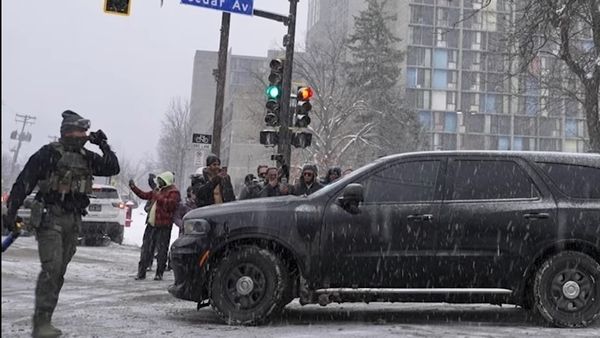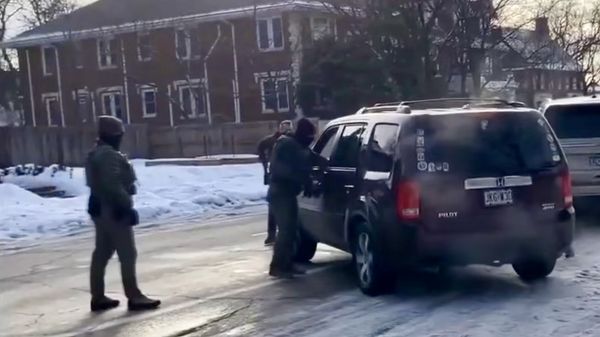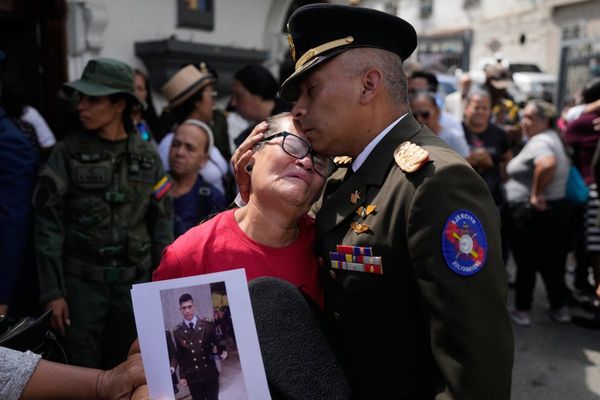
No single adjective could do justice to the events that rocked Ireland in July and August 1982, so the then taoiseach, Charles Haughey, used four: “Grotesque, unbelievable, bizarre and unprecedented”. An acronym was soon born: Gubu.
That summer, Malcolm MacArthur, a socialite with a yen for bow ties and cravats, had bludgeoned a young woman to death, killed a farmer with his own shotgun and attempted to rob a retired US diplomat, sparking a huge manhunt.
Police tracked MacArthur down to the Dublin apartment of the then attorney general, Patrick Connolly, who had hosted the fugitive as a guest, unaware of his crimes. After police led MacArthur away, Connolly flew to London to catch a Concorde flight to New York for a holiday.
Haughey was left to try to explain the affair at a chaotic press conference in which he unwittingly gave rise to the new acronym and undermined his government, which tottered and finally fell on 4 November 1982.

Forty years later, the saga and its strange aftermath has again transfixed Ireland. A seven-part Irish Times podcast, Gubu, topped the charts in Ireland this summer, while another seven-part podcast, Obscene: the Dublin Scandal, narrated by actor Adrian Dunbar, launched in September on the BBC. Both span the anniversaries of the crimes and the political convulsions that followed.
Irish Twitter users have suggested the acronym should be dusted off and applied to Britain’s political turmoil.
Haven’t heard of GUBU before? It’s time, #UK https://t.co/LbkWWFG4Ul
— Tom Gerald Daly (@DemocracyTalk) October 20, 2022
“I can’t think of a story that was more sensational. You had this extraordinary series of murders, and then the jaw-dropping revelation that the chief suspect was found in the home of the state’s top law enforcement officer,” said Harry McGee, who presented and produced the Irish Times podcast. “What surprised me is that there was also a very large number of younger listeners, most born many years after the events.”
Haughey’s reputation for intrigue fuelled conspiracy theories that destabilised his government, even though, in this instance, the taoiseach was blameless, said McGee. “But that acronym followed him around like a stray dog for the rest of his career. The scandal defined the whole era.”
The podcasts debunk several myths, including that the state covered up a clandestine paedophile ring in the upper echelons of Irish society.
The case inspired John Banville’s 1989 novel The Book of Evidence, which was shortlisted for the Booker prize.
In some ways the drama still plays out. MacArthur, released in 2012 after 30 years in prison, pops up at Dublin cafes and book launches.
It was haunting to see the murderer so unchanged, as if frozen, the author and commentator Fintan O’Toole told the BBC podcast. “It was as if this figure had disappeared and come back as he was. It’s a sort of weird, ghostly presence that he still has in Dublin.”
Another contributor said he confronted MacArthur in a cafe: “I went over and said: ‘You murdered my best friend’s daughter.’ He glanced up at me, and then put his eyes back down and never gave me any recognition whatsoever.”
MacArthur has declined interview requests, saying that as a condition of bail he cannot discuss his crimes.

What drove him remains an enigma. The only child of wealthy landowners, his parents had a toxic marriage and he grew up a loner. He studied in the US, then returned to Ireland in the 1970s, a tweedy, raffish figure who never worked, lived off his inheritance and frequented fashionable bars.
He had a child with his partner, Brenda Little, and it was through her that he met Connolly. In early 1982 the couple moved to Spain, but MacArthur’s inheritance was spent; he was broke. He returned to Dublin alone, intending to steal a car and a gun to rob banks, believing that the police would blame the IRA.
Described by some as a fantasist and others as amoral, MacArthur stalked sunbathers in the Phoenix park on 22 July. He forced a young nurse, Bridie Gargan, into her car and beat her savagely with a hammer. He drove off and abandoned the car, leaving Gargan fatally injured.
Two days later he took a bus to County Offaly to meet a farmer, Dónal Dunne, who had advertised a shotgun for sale. MacArthur shot Dunne in the head and drove off with his car, and the shotgun, back to Dublin.
On 4 August he called on Harry Bieling, a retired US diplomat living in Dalkey, an affluent suburb of Dublin. Brandishing the gun, MacArthur demanded £1,000. Bieling managed to flee, prompting MacArthur to move to the nearby apartment of Connolly, who agreed to host him.
The guest had taxis deliver bottles of Perrier water, plus copies of the Irish Times and Private Eye – all paid for on Connolly’s account. He also accompanied the attorney general to an All-Ireland hurling semi-final at Croke Park.
With clues scattered across the city, the manhunt soon closed in. On 13 August detectives arrested MacArthur. He confessed everything, saying he could not cope with his dwindling finances. “This all goes back to money,” he said.
As for Connolly, his fate was sealed as he was summoned back home after just one night in New York, to resign. Haughey’s government collapsed a few months later.







